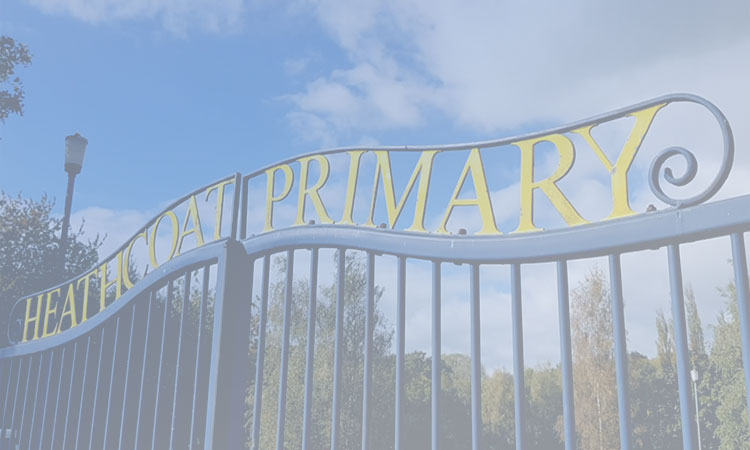We understand that the current world news regarding the conflict in Ukraine can be a very frightening topic of discussion for everyone and for our children. Many children have come into school talking about it this week.
The class teachers have spoken to the children about the current situation in an appropriate way to explain what is happening. We will continue to talk to the children and support them over the coming weeks.
There is a great deal of useful information online about how to talk to your child.
The following advice comes from Save the Children experts, specifically for talking to children about conflict/war:
1. Make time and listen when your child wants to talk: Give children the space to tell you what they know, how they feel, and to ask you questions. They may have formed a completely different picture of the situation than you have. Take the time to listen to what they think, and what they have seen or heard.
2. Tailor the conversation to the child: Be mindful of the child’s age as you approach the conversation with them. Young children may not understand what conflict or war means and require an age-appropriate explanation. Be careful not to over-explain the situation or go into too much detail as this can make children unnecessarily anxious. Younger children may be satisfied just by understanding that sometimes countries fight. Older children are more likely to understand what war means but may still benefit from talking with you about the situation. In fact, older children will often be more concerned by talk of war because they tend to understand the dangers better than younger children do.
3. Validate their feelings: It is important that children feel supported in the conversation. They should not feel judged or have their concerns dismissed. When children have the chance to have an open and honest conversation about things upsetting them, it can create a sense of relief and safety.
4. Reassure them that adults all over the world are working hard to resolve this: Remind children that this is not their problem to solve. They should not feel guilty about playing, seeing their friends, and doing the things that make them happy. Stay calm when you approach the conversation. Children often copy the sentiments of their caregivers—if you are uneasy about the situation, chances are your child will be uneasy as well.
5. Give them a practical way to help: Support children who want to help. Children who have the opportunity to help those affected by the conflict can feel like they are part of the solution. Children can create fundraisers, send letters to local decision-makers, or create drawings calling for peace.
This advice comes from ELSA (Emotional Literacy Support Assistant) and is about talking to children after a frightening event:
Find out what they know and correct any misconceptions. Children do hear things on the news, on the playground and they may not fully understand what has happened. Find out what they know and then you are able to explain gently and in an age appropriate way so they can have some understanding of the situation. Encourage questions and answer as honestly as you can without causing distress. Think of the age of the child and their potential level of understanding.
Express feelings. Feelings are important. There may be a whole range of feelings around a frightening event from sadness to anxiety to anger. Encourage your child to express how they feel about an event and don’t be scared of expressing your feelings too. Don’t hold back the tears if you feel sad. Children need to see it is ok to let your feelings out. Use drawing or puppets to help children express their feelings.
Shield very young children from disturbing images on the TV/internet. There is absolutely no need for children to see scary and frightening images on TV/online. This is something that does need shielding from your children. They will not understand and it could cause a lot of fear and anxiety. Shielding images and news on TV/online is not shielding them from what has happened. You can explain that to them in a truthful and age appropriate way.
Risk Assessment. Children are often scared that this might happen to them. Look at risks in life and how likely or unlikely things may happen. We just hear about them more on the news so it seems like a real threat and that it might happen anytime.
Routines, routines, routines. Keep to your child’s normal routines and don’t change them. Children feel safer when things carry on as normal.
We would like to take this opportunity to share with resources that you can access at home to support any discussions you have with the children.
The link below directs you to a range of different sites to access resources and support.
Babcock LDP – Discussing the News with Children – Ukraine
Newsround, from the BBC’s, CBBC channel, has lots of videos and reports about the war in Ukraine that have been produced for children. There is also a section containing tips for children who are feeling sad or upset about something they have seen heard or read.
Home – CBBC Newsround (scroll down)
Place2Be’s educational psychologists have also share advice about how to discuss war and conflict with children and how best you can support them at this difficult and worrying time.
Talking to children and young people about war and conflict | Place2Be
Please continue to monitor children’s device use at home as children can sometimes see distressing content online.
Some of the children have been asking about how they can support those living in Ukraine. We are aware that North Devon Tyres are acting as a collection point for resources. There is also a collection point at The Old Heathcoat School Community Centre on Sunday 6th March 1pm – 4pm.
Miss Higginson
Head of School

